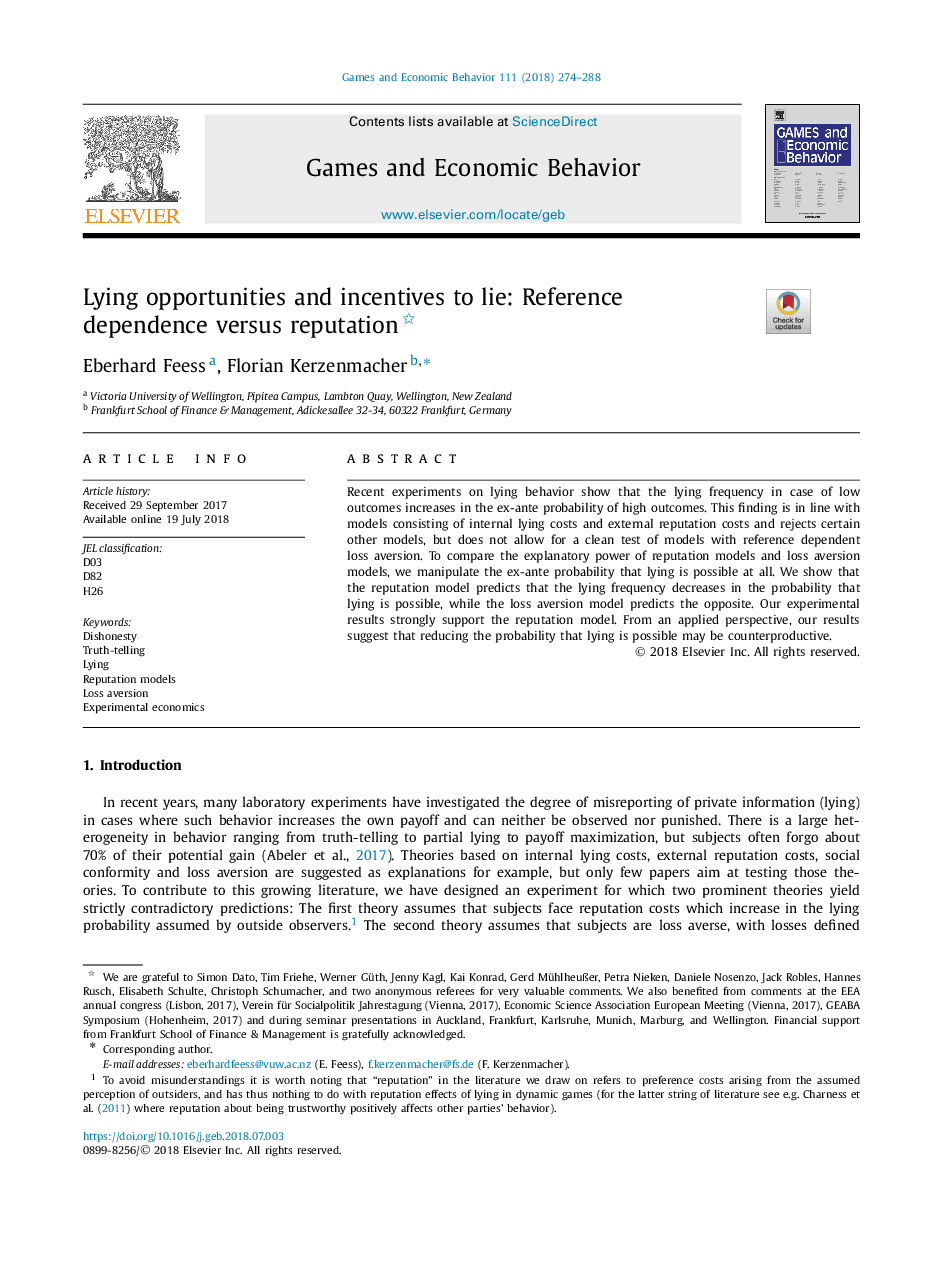| Article ID | Journal | Published Year | Pages | File Type |
|---|---|---|---|---|
| 7352699 | Games and Economic Behavior | 2018 | 15 Pages |
Abstract
Recent experiments on lying behavior show that the lying frequency in case of low outcomes increases in the ex-ante probability of high outcomes. This finding is in line with models consisting of internal lying costs and external reputation costs and rejects certain other models, but does not allow for a clean test of models with reference dependent loss aversion. To compare the explanatory power of reputation models and loss aversion models, we manipulate the ex-ante probability that lying is possible at all. We show that the reputation model predicts that the lying frequency decreases in the probability that lying is possible, while the loss aversion model predicts the opposite. Our experimental results strongly support the reputation model. From an applied perspective, our results suggest that reducing the probability that lying is possible may be counterproductive.
Related Topics
Social Sciences and Humanities
Economics, Econometrics and Finance
Economics and Econometrics
Authors
Eberhard Feess, Florian Kerzenmacher,
